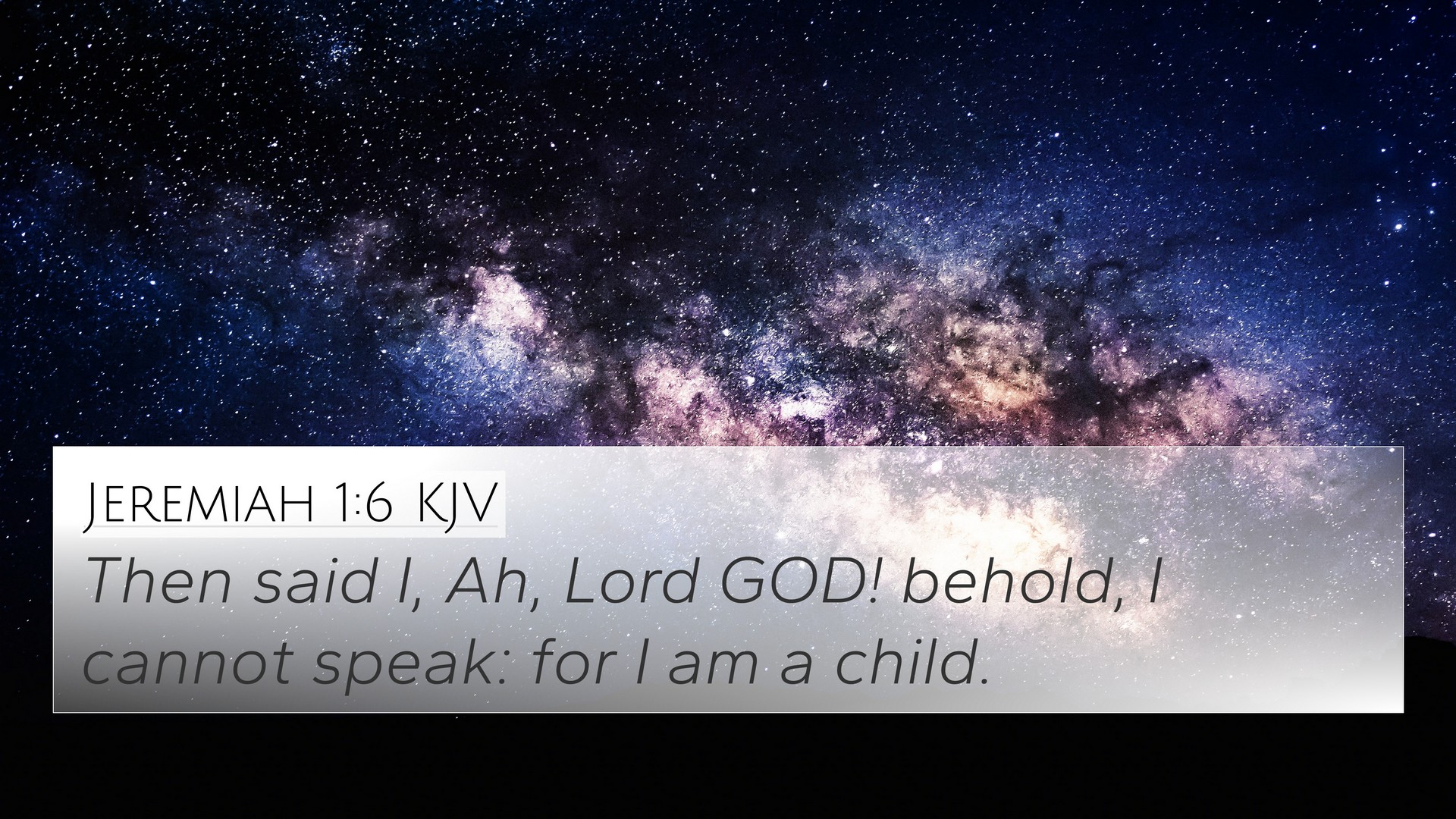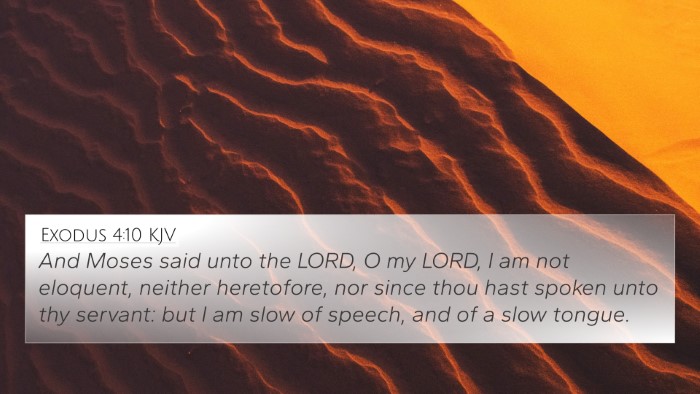Understanding Jeremiah 1:6
Jeremiah 1:6 states: “Then said I, Ah, Lord God! behold, I cannot speak: for I am a child.” This verse depicts the initial hesitance of the prophet Jeremiah when he is called by God to deliver His messages. A deeper exploration of this verse reveals various insights supported by notable public domain commentaries.
Insights from Public Domain Commentaries
Commentary by Matthew Henry
Matthew Henry emphasizes Jeremiah's youthful inexperience and reluctance to take on the prophetic role. He suggests that this reaction is not uncommon among those called to serve God, illustrating the human tendency to doubt one's capabilities when faced with divine assignments. Henry points out that God's calling often challenges individuals beyond their comfort zones.
Commentary by Albert Barnes
Albert Barnes discusses the implications of Jeremiah's self-doubt. He interprets the phrase “I am a child” to mean not only Jeremiah’s physical youth but also his spiritual and emotional state at the time of calling. Barnes highlights that God often chooses the humble and weak, showcasing His power through their vulnerabilities.
Commentary by Adam Clarke
Adam Clarke provides a detailed linguistic analysis, indicating that the term "child" could denote a very young person, perhaps lacking in experience. Clarke reflects on the notion that God does not consider age or experience when choosing His messengers, emphasizing that divine purposes are often fulfilled through those whom the world might deem inadequate.
Significance of Jeremiah 1:6
The reluctance exhibited by Jeremiah resonates with many believers who may feel unprepared for God's calls in their lives. His initial response may serve as encouragement for those who experience similar doubts. It affirms that fear or inadequacy can be part of the journey toward fulfilling God's will.
Cross-References for Jeremiah 1:6
- Exodus 4:10-12: Moses expresses similar concerns regarding his speaking abilities when called by God.
- Isaiah 6:5-8: Isaiah acknowledges his unworthiness and lack of readiness but is commissioned nonetheless.
- 1 Timothy 4:12: Paul encourages Timothy not to let others look down on him for his youth, aligning with the theme of young leaders.
- Acts 7:22: References Moses’ upbringing and education in Egypt, showing how God prepares leaders.
- Jeremiah 29:11: God’s promise of a future and hope highlights His sovereign purpose even when we feel inadequate.
- 2 Corinthians 12:9: Paul learns that God’s strength is made perfect in our weakness, similar to Jeremiah's experience.
- Luke 1:37: “For with God nothing shall be impossible,” affirming God’s ability to empower His chosen vessels.
Thematic Bible Verse Connections
This verse connects with broader themes throughout scripture, particularly concerning the nature of divine calling and human frailty. Cross-referencing biblical texts reveals recurring motifs of inadequacy, divine empowerment, and the transformative journey of those called by God.
Connections with the New Testament
In the New Testament, the patterns of calling reflected in Jeremiah’s response are mirrored in the lives of Jesus' disciples. They often had doubts and insecurities when tasked with spreading the Gospel, illustrating that the divine call does not always align with human confidence.
Conclusion
Jeremiah 1:6 serves as a poignant reminder of the complexity of God's calling. It encourages believers to see beyond their insecurities, trusting that God equips those whom He calls, regardless of human limitations. The cross-references provided not only illuminate this verse in context but also weave a comprehensive narrative throughout scripture about the nature of divine purpose and human response.
Tools for Bible Cross-Referencing
Utilizing a Bible concordance or a bible cross-reference guide can aid in identifying similar themes and connections. The cross-reference Bible study approach enriches understanding by exploring biblical parallels and thematic linkages.











